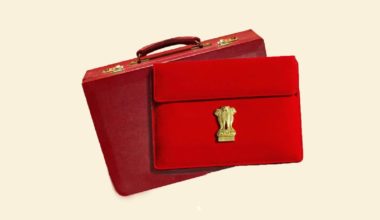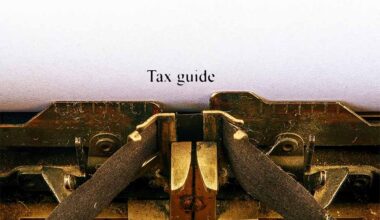Allowances in a salary refer to additional amounts paid to employees, often beyond the basic salary, to cover specific expenses or provide certain benefits. The types of allowances can vary based on company policies, industry standards, and government regulations. Common allowances include: House Rent Allowance (HRA), Dearness Allowance (DA), Transport Allowance, Medical Allowance, Special Allowance etc.
Table of Contents Show
What is Allowance?
An allowance is a predetermined sum of money that employers provide to their employees, intended to cover specific expenses beyond the basic salary. As per the Income Tax Act of 1961, allowances are added to the salary of an individual and it is taxed under the head income coming from salaries. All employees should therefore be fully aware of which allowances in the salary slip are taxable. This can help save on taxes and in the long run, can help the employee make the right investment choices efficiently.
All salary allowances are divided into three types: tax-exempt, partly taxable, and fully taxable.
What Are Non-Taxable Allowance?
In India, certain allowances are considered non-taxable, subject to specific conditions and limits defined by the Income Tax Act.
- Uniform Allowance: An allowance granted for the purchase or maintenance of a uniform required during the performance of official duties is exempted up to the actual amount spent on related expenses.
- Allowances Paid to Government Employees Abroad: Allowances or perquisites paid outside India by the Government to a citizen of India for services rendered abroad are exempt from tax.
- Allowances Paid to UNO Employees: Allowances paid by the United Nations (UNO) to its employees are not taxable under the United Nations (Privileges and Immunities) Act.
- Allowances for Judges of High Court and Supreme Court: Allowances paid to Judges of High Courts and the Supreme Court are not taxable.
- Compensatory Allowances for Judges: Compensatory allowance received by a judge under Article 222(2) of the Constitution is not taxable, as it is neither considered salary nor perquisite.
- Sumptuary Allowance for High Court Judges: Sumptuary allowance given to High Court Judges under Section 22C of the High Court Judges Act, 1954, is not chargeable to tax.
- Helper Allowance: An allowance granted to an employee to cover the expenses incurred on a helper engaged for performing official duties.
- Other Tax-Free Allowances: Various other tax-free allowances include Daily Allowance, Academic/Research Allowance, Conveyance Allowance, Allowances paid to government employees posted outside India, Compensatory Allowances paid to Judges, Travelling Allowance, and others. These allowances are exempt from tax as per applicable rules and regulations.
Partly Taxable Allowance
Such allowance types are tax-exempt up to a certain point as mentioned under the Income Tax Act. These include:
- House Rent Allowance (HRA) is a special allowance provided by employers to employees for accommodation expenses. As per Section 10(13A) of the Income Tax Act, the least of the following is exempted, and the remaining amount is taxable: Actual HRA received, Rent Paid minus 10% of Basic Salary + Dearness Allowance, and 40% (or 50% in metro cities) of Basic Salary + Dearness Allowance. This exemption is not applicable if the employee lives in their own house or a house for which they haven’t incurred rent expenses.
- Children Education Allowance is granted for a child’s education, exempted up to Rs. 100 per month per child (up to 2 children). Hostel Expenditure Allowance is for hostel fees, exempted up to Rs. 300 per month per child (up to 2 children).
- Transport Allowance for certain disabilities is exempt up to Rs. 3,200 per month. Special Allowance is granted for specific expenses incurred and is fully taxable. Underground Allowance for employees working in underground mines is exempt up to Rs. 800 per month.
- Conveyance Allowance is exempt up to INR 1,600 per month, subject to changes due to Budget amendments. Leave Travel Allowance (LTA) is exempt based on the applicable travel mode, with specific conditions on expenses.
- Medical Allowance is taxable, and Medical Reimbursement is replaced by Standard Deduction since Budget 2018. Car Maintenance Allowance for company car usage is exempted up to specified amounts, depending on the cubic capacity of the car and whether the employee owns the car.
What Are Fully Taxable Allowances?
Fully taxable allowances are those components of an employee’s compensation that are subject to income tax. These allowances are not exempt from taxation and are considered part of the taxable income. Examples of fully taxable allowances may include:
- Dearness Allowance (DA) is typically provided to employees in addition to their basic salary to address inflation and offset the rising cost of living. According to the Income Tax Act, the tax liability for Dearness Allowance is calculated along with the salary, and individuals must declare it when filing their income tax returns.
- Entertainment Allowance is granted to cover expenses related to hosting clients or similar activities. While government employees may receive a deduction for entertainment allowance, for non-government employees, it is fully taxable. The taxable amount is determined by considering the lower of one-fifth of the basic salary, ₹5,000, or the actual entertainment allowance received.
- Medical Allowance, aimed at covering medical expenses, is fully taxable. Overtime Allowance, provided to employees working beyond regular hours, is also fully taxable.
- City Compensatory Allowance is given to employees in urban areas to help manage the higher cost of living, and it is taxable regardless of the purpose for which it is given.
- Various other allowances such as Interim Allowance, Project Allowance, Tiffin/Meals Allowance, Cash Allowance, Non-Practicing Allowance, Warden Allowance, Servant Allowance, and Transport Allowance have their specific tax implications as well.
The three categories of allowances paid to employees – non-taxable, fully taxable, and partly taxable are ways in which employees can save money. Employers should be fully aware of these different types of allowances, and the salary should be structured in a way that benefits both employees and employers by reducing their tax expenses.







